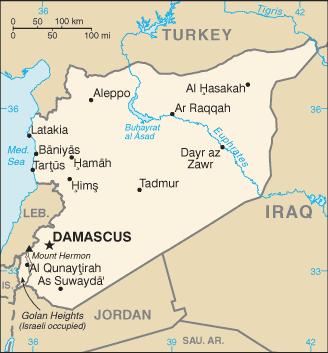A United Nations Security Council resolution meant to remove President Bashar al-Assad from power and begin a political transition failed Saturday due to vetoes from Russia and China.
 As violence escalates in Syria, rights groups say that up to 321 Syrians have been killed this weekend in the city of Homs due to shelling by the Assad government. The U.S. has been pushing to intervene and take Assad from power, and UN Ambassador Susan Rice used the recent killings to criticize the veto from Russia and China.
As violence escalates in Syria, rights groups say that up to 321 Syrians have been killed this weekend in the city of Homs due to shelling by the Assad government. The U.S. has been pushing to intervene and take Assad from power, and UN Ambassador Susan Rice used the recent killings to criticize the veto from Russia and China.
“The United States is disgusted that a couple of members of this Council continue to prevent us from fulfilling our sole purpose,” US Ambassador to the United Nations Susan Rice said. “For months this council has been held hostage by a couple of members,” she said, which she said had been “delaying and stripping bare any text to force Assad to stop his actions.”
The U.S. has predictably couched their push for intervention in humanitarian terms, while Russia does exactly the same thing, arguing that intervention, especially if led by the U.S., would cause more bloodshed and chaos.
In truth, geopolitical concerns are driving each of the postures. The U.S. and its Arab allies in the Gulf States, would welcome the chance to remove Assad from power and possibly replace the regime with a more Sunni-oriented, pro-Western dictatorship. Such a result would have the added benefit of eliminating Iran’s primary ally in the region, thus isolating the regime in Tehran even more.
On the other hand, Russia claims to object to intervention for the sake of the Syrian people, while it supports the murderous Assad regime with money and weapons. Russia is closely allied with Syria, a relationship that affords them a lot of influence in the Middle East, and has an interest in pushing back against Western imperialism for the sake of maintaining their own stake in the region.
Western powers, and the vast majority of the Security Council, continue to push for a plan that would sanction the Assad regime or even transfer power to his deputy and set early elections. Russia and China continue to argue for dialogue between the opposing sides in Syria. Meanwhile, the fighting in Syria continues and the humanitarian crisis worsens.


